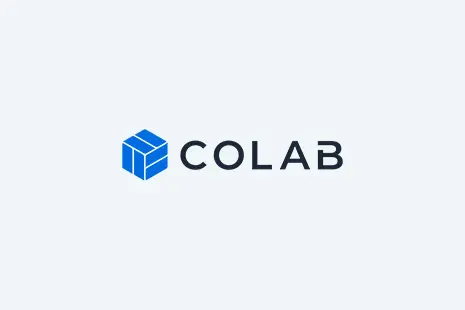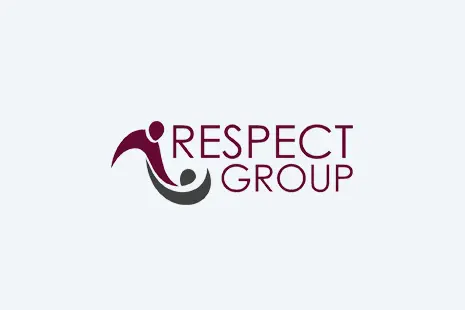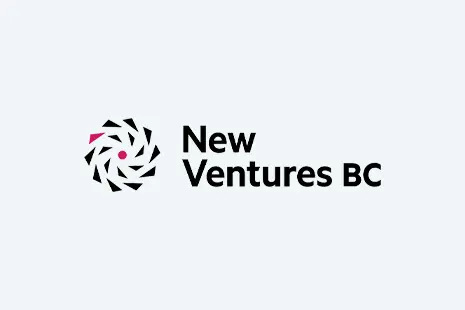How CoLab’s finance director eliminated hours of manual work while growing claims
Executive Summary
COMPANY: CoLab (Y Combinator 2019, Series B) INDUSTRY: Engineering Design Collaboration Software SIZE: 150+ employees globally
CHALLENGE: Painful R&D tax credit process with Big Four firm, including 12-hour audits and missed opportunities
SOLUTION: Switched to Boast’s technology-first R&D tax credit platform
RESULTS: Claims doubled then tripled year-over-year, significant time savings, streamlined audit defense
THE CHALLENGE
When “Expertise” Becomes a Bottleneck
Tyler Kelloway joined CoLab in 2018 when the engineering design collaboration platform was pre-revenue with fewer than 10 employees. Having worked at a Big Four accounting firm, Tyler was familiar with traditional approaches to
R&D tax credits—but that familiarity would soon become a liability.
When CoLab began pursuing R&D tax credits in 2019, they followed the conventional wisdom: work with a Big Four accounting firm. The result was a perfect storm of inefficiency and frustration.

“I knew very little about SR&ED and corporate R&D tax credits, likely by choice, it’s not the biggest, sexiest area of study.”
TYLER KELLOWAY,
COLAB DIRECTOR, FINANCE
The Big Four Reality Check
CoLab’s first R&D tax credit experience epitomized everything wrong with the traditional accounting approach:
- 12-hour audit marathons: Their first audit should have taken two hours but stretched to twelve due to communication breakdowns
- Technical disconnect: The auditor couldn’t understand CoLab’s innovative design collaboration technology
- Language barriers: Getting “caught up in a couple of words” nearly eliminated their entire claim
- Manual documentation nightmares: As Tyler explains, “When you’re a small company, you typically do not have that documented process information on how XYZ is done, how XYZ is developed, who did what and who did it when.”
“The 12-hour audit could have been done in two if that understanding was there,” Tyler notes. “The challenging part was trying to communicate in a tax auditor’s world what a new technology that you cannot compare to a competitor does.”
The Hidden Costs of Generic Service
Beyond the time drain, CoLab faced the classic Big Four problem: R&D tax credits were just another line item in a broad service portfolio. Their accounting firm lacked:
- Deep understanding of software development processes
- Ability to translate technical innovation into “SR&ED-able language”
- Systematic approach to documentation and audit defense
- Focus on maximizing returns versus checking compliance boxes
The result? Mediocre claims, painful processes, and the constant fear that they were leaving money on the table.
THE SOLUTION
Technology Meets Specialized Expertise
By 2021, CoLab had grown significantly, completing their Series A and expanding their team. It was time to reevaluate their R&D tax credit strategy.
“We thought it was a good excuse for us to go to market to see: are we still getting the best service and paying market rate for this service?”
CoLab ran a comprehensive RFP process, evaluating three Big Four firms and two specialized R&D tax credit providers, including Boast.
“It all kept coming down to: are they equipped to write this entire claim without us? And if they write this entire claim without us, will we have to go rewrite the claim?”
The RFP That Changed Everything
CoLab’s evaluation criteria were extensive—15 to 20 different factors. But Tyler discovered something crucial:
This is where Boast differentiated itself from both Big Four firms and tech-only competitors.
“When we first met Boast, the technical partner actually said the elevator pitch back to CoLab and understood it after
the first call,” Tyler recalls. “It’s not ‘this doesn’t make any sense, we need to reshape this because it doesn’t relate to anything we’ve actually done.’ It’s understanding the product, aligning with how you want to work together, and then actually getting that down in SR&ED-able language.”
Beyond Just Technology
While other providers focused on either pure automation or traditional manual processes, Boast offered the crucial combination:
- Technical expertise: Writers who understand complex software development
- Process automation: Streamlined data collection and claim preparation
- Audit-ready documentation: Built-in defense strategies from day one
- Strategic partnership: Ongoing relationship rather than transactional service
THE RESULTS
Transformation Across Every Metric
Since switching to Boast, CoLab has experienced dramatic improvements across every dimension of their R&D tax credit program.
Exponential Claim Growth
“From 2017 to 2019, I think we doubled every year from a claim perspective,” Tyler reports. “2019 to 2021, we would have tripled one year and then went up around 10% to 20% thereafter.”
This wasn’t just about company growth—it represented Boast’s ability to identify and capture R&D activities that were previously missed.
“It’s definitely saved a significant amount of time on the technical side, it’s saved our development time more than anything.”
Time Savings That Scale
The transformation was particularly dramatic given CoLab’s growth trajectory:
- Inverse time relationship: As CoLab grew from 10 to 150+ employees, time spent on R&D tax credits decreased rather than increased
- Automated documentation: Boast’s platform creates comprehensive records without manual intervention
- Streamlined reviews: Technical writers who understand the business eliminate back-and-forth revisions
Strategic Cash Flow Impact
“When you’re a company of 20 or 30, you have a couple million and you have X amount of months until you always have that horrible plan… SR&ED’s one of those government funding facilities where you get the cash immediately,” Tyler explains.
The improved R&D tax credit returns enabled CoLab to:
- Extend runway during critical growth phases
- Accelerate hiring by pulling roadmap items forward by quarters
- Fuel innovation including their new Auto Review product launched in July 2025
- Maintain cash flow without dilutive funding requirements
“If you had unlimited amount of funds and you could take any SR&ED partner in the world, the most important thing is your technical partner.”
THE BOAST DIFFERENCE
Why Specialized Expertise Wins
Tyler’s experience illustrates why the R&D tax credit landscape is shifting away from both Big Four generalists and pure-tech solutions toward specialized expertise combined with purpose-built technology.
Technical Partnership vs. Vendor Relationship
“The most important thing is your technical partner,” Tyler emphasizes.
Boast’s technical writers don’t just collect data—they understand the innovation story and can translate it effectively for government reviewers.
“You need to make it seem like you’re accomplishing your technological uncertainty and then it also be reflective of what you actually did.”
Process Excellence
“You don’t develop a widget and you have your process for your widget and if you wrote how all that happened, that is not SR&ED-able language,” Tyler notes.
This nuanced understanding separates specialized providers like Boast from both generic accounting firms and automated-only solutions.
Continuous Value Creation
Unlike project-based relationships with traditional firms, Boast provides ongoing value:
- Platform access: Year-round documentation and optimization
- Strategic planning: Integration with business roadmap and funding needs
- Market intelligence: Updates on policy changes and opportunities
- Audit readiness: Continuous preparation rather than reactive defense
“I speak fairly candidly, giving references. I like to hear their current state before saying, ‘Oh yeah, Boast is great, you should go with Boast.’ Because then I can talk about the difference between their current state and what I think a future state would look like.”
RECOMMENDATION
Why Finance Leaders Choose Boast
When Tyler provides references for Boast prospects, he focuses on the practical realities finance leaders face:
For companies evaluating R&D tax credit providers, Tyler’s experience offers clear guidance:
Red Flags to Avoid
Green Flags to Seek
“Honestly, it has been great since we switched,” Tyler concludes. “It’s saved a significant amount of time… being able to reference something we did in February in layman terms and how that translated over to the SR&ED claim.”
The Bottom Line
Tyler’s journey from Big Four frustration to R&D tax credit success illustrates a broader transformation in how growing companies approach government funding. The old model of generic accounting services and painful manual processes is giving way to specialized expertise enhanced by purpose-built technology.
For finance leaders at growing technology companies, the choice is clear: continue struggling with outdated approaches, or partner with specialists who understand both your innovation and the funding landscape.
CoLab’s results speak for themselves: doubled then tripled claims, streamlined processes, confident audit defense, and strategic cash flow that fuels continued innovation. That’s the power of getting R&D tax credits right.
CoLab develops design engagement systems that connect all aspects of design review for complex product development. Founded in 2018 and part of Y Combinator’s 2019 class, CoLab has raised Series B funding and serves 150+ global team members. Learn more at colab.com.


